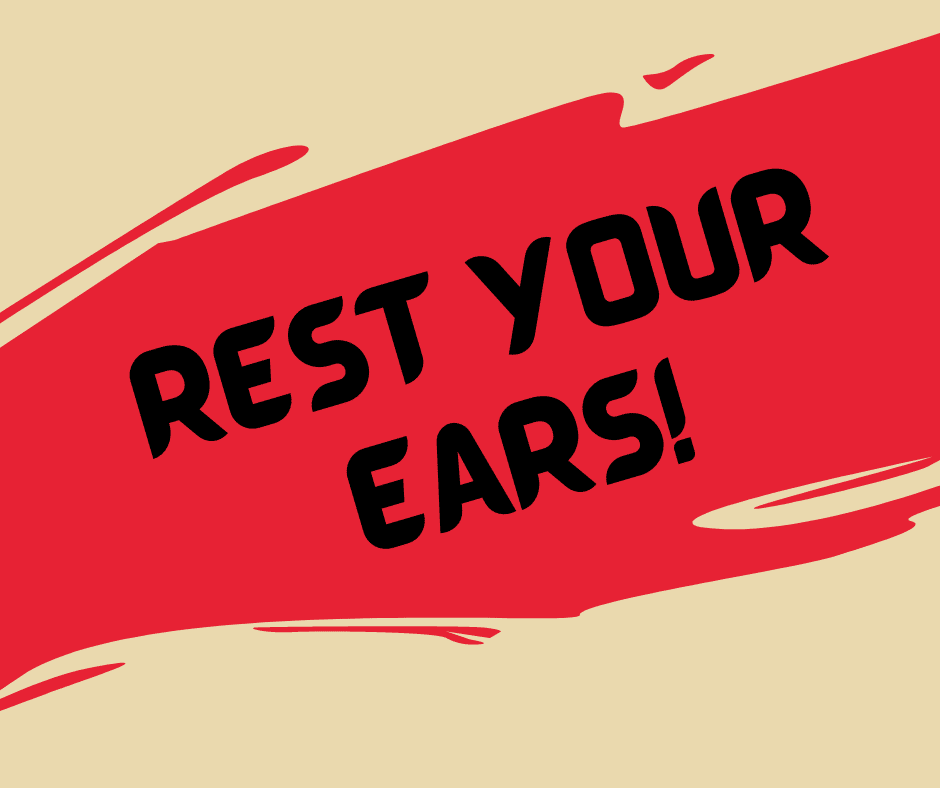Both of my parents used to say I’m just going to rest my eyes for a bit. As kids, we knew that we were about to be tuned out. Nothing in the world requiring their attention at this minute was going to get it. We had to find someone else to bother, because mom and dad were closing their lids over their eyeballs. A blanket for the eyes. An eye-nap, turning off visual stimulation.
Many people with hearing loss do the same thing when the amplified sounds of life from their hearing aids or cochlear implants become too much. They ‘rest their ears’ (and brain) by removing their devices, welcoming the relative silence that follows. Many people whip off their sound processors or hearing aids the minute they get home from work, choosing what they perceive as blissful peace.
I understand the need for respite from audible communication because these days I hear things as LOUD, all the time. Reducing the volume on my devices doesn’t help – it’s just the way my brain rolls. But my tinnitus, with all its chaotic whoops, hums and hollers, ramps up even higher when my devices are off. So, after I put on my hearing aid and sound processor in the morning, they come off only for showers and bedtime.
But it’s not just the actual noise from which we, the people with hearing loss, need a break. It’s the energy output required to follow a conversation, to understand in challenging and difficult listening situations, and to absorb visual cues from speechreading and captions that makes our head clunk down on the table or our bodies collapse on the couch.
The effort of communicating through the many minutes and hours of a day adds up to a serious energy drain. And it is insidious…our personal oomph just trickles away, gradually, often without us realizing it, leaving us exhausted at the end of the day.
What can we do?
- If too much sound has been playing havoc with my tinnitus, I will watch a movie without sound, using captions. The visual input pulls my attention away from the tinnitus, especially if the movie is good.
- Let your family or friends know that you are deliberately tuning out, so don’t even try talking to you! But then remove yourself to a place where they are not, otherwise they will be confused and continue to try talking to you.
- Schedule ear-breaks in your workday – just a few minutes at a time when you are not required to hear, to listen or to respond.
- Meditation works! Close your eyes and let your mind settle, doing deep breaths. It works, trust me.
- Exercise, gentle or vigorous, but preferably without involving much in the way of sound is a wonderful break from communication. Yes, it does require an initial outlay of even more energy, but it there’s a big-time payback when you’re done. You’re refreshed and ready to communicate again. Or not.
Tell me, what do you do to rest your ears?







Very true article. It becomes exhausting to “listen” through tinnitus.
Nice article! I take about 15 minutes early afternoon to “decompress” by taking my aids out and laying still. My family understands this and actually encourages me to do it! I work out early one hour every day and play a tinnitus masker through headphones during this time……very soothing. I don’t need to hear all the treadmill traffic. At night I do something very similar like you do….when my wife goes to bed I will pull them out and watch the news through close caption . As always appreciate your articles.